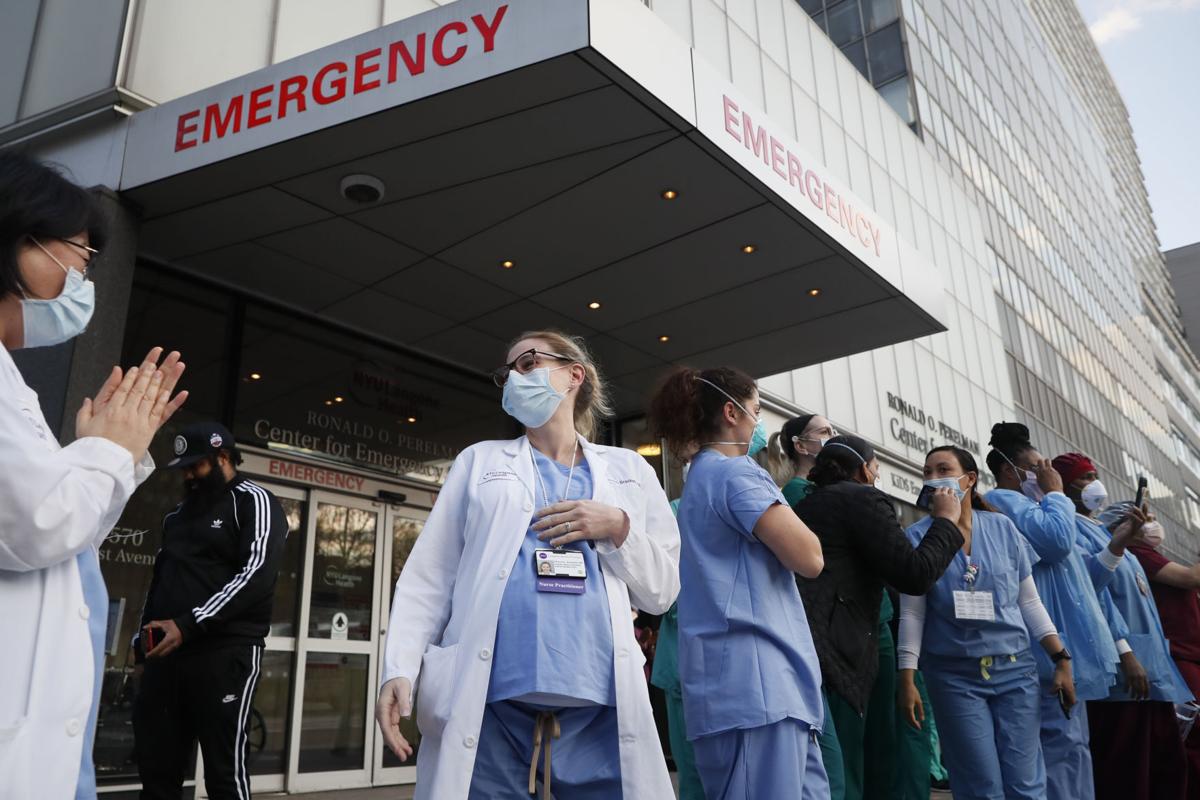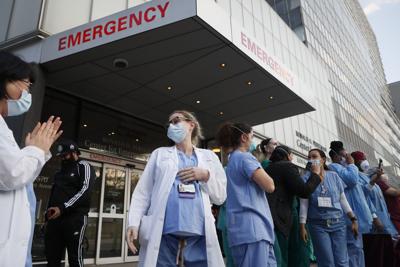Equipped with a playbook, an army of contact tracers will play an important role in containing the spread of the coronavirus as regions within New York begin to reopen their economies.┬Ā
Former New York City Mayor Michael Bloomberg is leading the state's contact tracing initiative. As many as 17,000 tracers could be needed, depending on the number of confirmed COVID-19 cases in the state.┬Ā
Bloomberg, through his charitable organization Bloomberg Philanthropies, is partnering with Johns Hopkins University to recruit, interview and train tracers. The tracers will include state and local health department employees in New York, as well as other government employees who aren't able to work due to the COVID-19 pandemic.┬Ā
The tracing program will complement the state's push to increase testing capacity. The state is now averaging nearly 30,000 COVID-19 tests per day, with a goal of reaching 40,000 tests per day.┬Ā
People are also reading…
As the state considers reopening some regions beginning in mid-May, the additional testing is necessary to identify those who have been infected with COVID-19. The tracing program will help identify people who had direct contact with positive cases, then those individuals can be quarantined to prevent further spread of the virus.┬Ā
"The faster you trace, the better," Gov. Andrew Cuomo said Thursday.┬Ā
It won't be easy. If thousands of people test positive in one day, the tracing investigations could identify thousands more who were exposed to positive cases. The Bloomberg-led initiative could streamline the process.┬Ā
Bloomberg, who appeared by video during Cuomo's briefing, said a staffing organization has been added to assess prospective contact tracers and the State University of New York and City University of New York will help identify potential applicants.┬Ā
Johns Hopkins University will offer a remote training class for potential contact tracers. The course will provide basic information about epidemics, contact tracing and privacy, according to Bloomberg. There will be a test at the conclusion of the training session.┬Ā
Technology will be used to assist with the large-scale contact tracing effort. Bloomberg said Vital Strategies, a non-profit public health organization, created three smartphone apps that will help contact tracers with data and information, help the public provide information to health departments and allow individuals in quarantine to access services, including a way of reporting symptoms to health officials.┬Ā
A "comprehensive playbook" is being developed by Vital Strategies to guide the contact tracing process. Bloomberg said the playbook will be released to the public so it can be accessed by states and cities across the country.┬Ā
"That way the work we do here in New York can help fight the virus globally," he said.┬Ā
The tracing investigations could help regions across the state from having to shut down again once they reopen. While some regions will remain closed due to a high number of cases and hospitalizations due to COVID-19, others with low infection rates could reopen as early as May 15. That includes central New York, which has the second-lowest infection rate in the state, according to recent antibody testing.┬Ā
Cuomo outlined a 12-point plan earlier this week that will guide the regional reopenings. Contact tracing is part of that strategy.┬Ā
"The problem is it's not rocket science to do it on an individual basis," Cuomo said. "The problem is the scale that we have to do this at."┬Ā
In other news:╠²
ŌĆó Total COVID-19 hospitalizations continue to decline. The number of hospitalizations is down to 11,598, a 561-patient drop from Wednesday. There were 1,232 discharges over a 24-hour period. So far, 49,405 people have been discharged from New York hospitals after recovering from COVID-19.┬Ā
The number of patients in intensive care units and the number of intubations also decreased.┬Ā
ŌĆó New York will likely reach 1 million people tested for COVID-19 within the next several days.┬Ā
As of Thursday, 900,636 New Yorkers have been tested for the coronavirus. So far, 304,372 people have tested positive for COVID-19.┬Ā
Politics reporter Robert Harding can be reached at (315) 282-2220 or robert.harding@lee.net. Follow him on Twitter @robertharding.
















